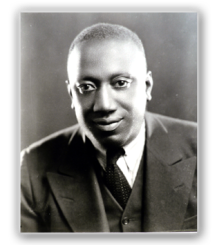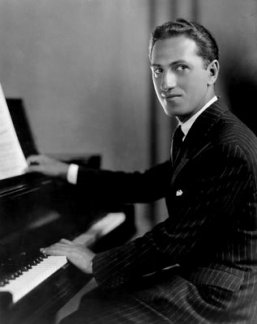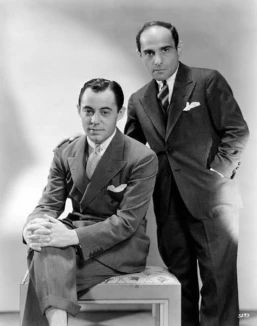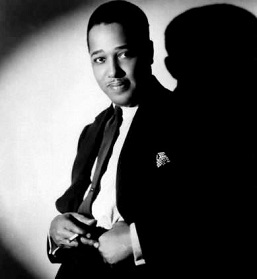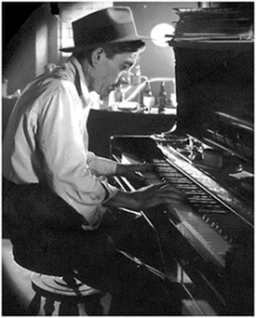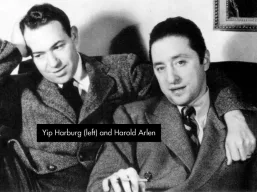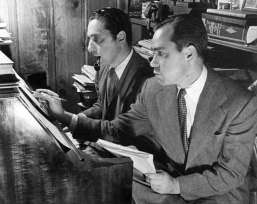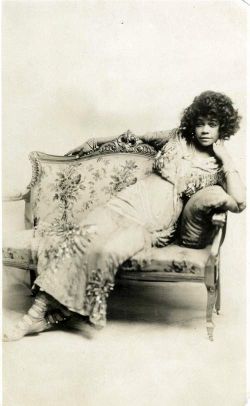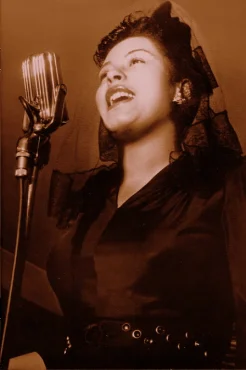1926 selected standards and hits, part 2
__________________________________
I’ve Found a New Baby (Jack Palmer, Spencer Williams)
Basin Street Blues (Spencer Williams)
If I Could Be With You (One Hour Tonight) (m. James P. Johnson, w. Henry Creamer)
Are You Lonesome Tonight? (m. Lou Handman, w. Roy Turk)
Coney Island Washboard Roundelay (m. Hampton Durand and Jerry Adams, w. Ned Nestor and Aude Shugart)
A Blues Serenade (Frank Signorelli, Vincent Grande, Jimmy Lytell, Mitchell Parish) — separate feature page
See also the following separate feature pages:
- Louis Armstrong and his Hot Five, 1926 selections
- Louis Armstrong and his Hot Five: recordings of 1925-1928 (.ra audio files)
_____________________________
1926 selected standards, part 1 — includes Bye Bye Blackbird , Someone to Watch Over Me, Tonight You Belong To Me, Baby Face, I Can’t Believe That You’re In Love With Me, Tip Toe Through the Tulips With Me, Blue Skies
___________________________
I’ve Found a New Baby (Jack Palmer, Spencer Williams) — first recorded on 22 January 1926 by Clarence Williams’ Blue Five
Ethel Waters – 1926(?) — It’s dated 1925 but I’ve found no other evidence that the song was recorded or even written earlier than 1926.
_________________
James P. Johnson (above, left) and Clarence Williams — Williams had introduced the song with his hit recording in 1926. This is a later version, recorded in 1930
_____________________
The Mills Brothers, 1934 — The songs which follow New Baby are Lulu’s Back in Town (Harry Warren, Al Dubin) and Miss Otis Regrets (Cole Porter).
.
Art Hodes and friends, 1968
The provider says: Pianist Art Hodes in his 1968 TV series Jazz Alley presents trombonist George Brunies. He also invited several established Chicago musicians including Nappy Trottier on trumpet, Jimmy Grenato on clarinet and Truck Parham on bass.
There’s a great lot of static during the first couple of minutes of all copies of the video I’ve found.
__________________________
Basin Street Blues (Spencer Williams) – The song was introduced in 1928 by Louis Armstrong and His Hot Five. The first hit came in 1931 with a recording by The Charleston Chasers, directed by Benny Goodman with vocal by Jack Teagarden.
Louis Armstrong and his Hot Five — recorded on 4 Dec 1928, Chicago. The provider notes that there was an unusual lineup for the recording:
The regular group of Johnny St Cyr on banjo, Lil Hardin on piano, Kid Ory on trombone and Johnnie Dodds on clarinet is not heard on this cut. On this recording, we have Mancy Cara on banjo, Jimmy Strong replacing Dodds on clarinet, Fred Robinson takes over on trombone, Earl Hines replaces Lil on piano and with his celesta, and Zutty Singleton is added at drums. Of course, Louis Armstrong leads with his cornet and vocals.
.
Louisiana Rhythm Kings – 11 June 1929
.
The Charleston Chasers (directed by Benny Goodman) recorded 9 Feb 1931, in New York City; issued on Columbia 2415-D, c/w “Beale Street Blues”
 Benny Goodman – clarinet, director
Benny Goodman – clarinet, director- Ruby Weinstein – trumpet
- Charlie Teagarden – trumpet
- Glenn Miller – tuba, arranger
- Jack Teagarden – tuba, vocal
- Sid Stoneburn – alto saxophone
- Larry Binyon – tenor saxophone
- Arthur Schutt – piano
- Dick McDonough – guitar
- Harry Goodman – string bass
- Gene Krupa – drums
.
Bing Crosby and Connee Boswell – recorded in August, 1942 with Frank Black and the NBC orchestra
_________________
Louis Armstrong – in concert, Stuttgart Germany 1959
Louis Armstrong – trumpet
Trummy Young – trombone
Peanuts Hucko – clarinet
Billy Kyle – piano
Mort Herbert – bass
Danny Barcelona – drums
Video to be replaced
_______________
Andrea Motis and Richard Gili with the Sant Andreu Jazz Band
Live at Casa Fuster, Barcelona, from the CD-DVD “Jazzing” — recorded on 21 June 2009 at the Jazz Club Cafe Vienna Hotel, Casa Fuster
del CD-DVD “JAZZING” live at Casa Fuster, Barcelona
Enregistrat el dia 21 de juny del any 2009 al Jazz Club del Cafè Vienès de l’Hotel Casa Fuster
_____________________
If I Could Be With You (One Hour Tonight) (m. James P. Johnson, w. Henry Creamer)
McKinney’s Cotton Pickers with vocal refrain by George Thomas – 1930
.
Louis Armstrong – 1930
.
Ruth Etting – 1930
_______________
Are You Lonesome Tonight? (m. Lou Handman, w. Roy Turk)
From Wikipedia:
A number of artists recorded “Are You Lonesome Tonight?” in 1927. Composer Lou Handman himself played piano while his sister Edith provided the vocals for a recording released on the Gennett label. Vaughn DeLeath (also known as “The Original Radio Girl”) recorded the song twice, first on June 13, as solo [sic] and later on September 21, as vocalist for The Colonial Club Orchestra. Around August 1927, another version was released by famed tenor Henry Burr.
 The first charting version of “Are You Lonesome Tonight?” was recorded by Blue Barron for MGM Records as catalog number 10628. The record first reached the Billboard pop chart on April 7, 1950 and lasted eight weeks there, peaking at number nineteen. Only a few weeks after Barron’s recording, Al Jolson recorded a version of the song on April 28, 1950; it was released by Decca Records as catalog number 27043.
The first charting version of “Are You Lonesome Tonight?” was recorded by Blue Barron for MGM Records as catalog number 10628. The record first reached the Billboard pop chart on April 7, 1950 and lasted eight weeks there, peaking at number nineteen. Only a few weeks after Barron’s recording, Al Jolson recorded a version of the song on April 28, 1950; it was released by Decca Records as catalog number 27043.
In 1959 American songstress Jaye P. Morgan had a Billboard #65 hit with it on the MGM label, backed by “Miss You”.
This led to the best-known recording, by Elvis Presley, recorded on April 4, 1960, and engineered by Nashville sound pioneer Bill Porter. Colonel Parker (it was one of his wife’s favorite songs) persuaded Elvis to record his own rendition of this song. Elvis’ version is based on [that of] the Blue Barron Orchestra in 1950[, while] the spoken part of the song[, as is the case with Al Jolson’s 1950 recording, makes reference to Jaques’ speech in Act II, Scene VII of Shakespeare’s As You Like It]: “All the world’s a stage, and all men and women merely players: they have their exits and their entrances; And one man in his time plays many parts.” It went on to be one of the biggest-selling singles of 1960, peaking at number one on the Billboard pop chart for six weeks.
__________________________________
 Vaughn De Leath (September 26, 1894 – May 28, 1943) was a female singer who gained popularity in the 1920s, earning the sobriquets “The Original Radio Girl” and “First Lady of Radio.” Although popular in the 1920s, De Leath is little known today.
Vaughn De Leath (September 26, 1894 – May 28, 1943) was a female singer who gained popularity in the 1920s, earning the sobriquets “The Original Radio Girl” and “First Lady of Radio.” Although popular in the 1920s, De Leath is little known today.
De Leath was an early exponent of a style of vocalizing known as crooning. One of her hit songs, Are You Lonesome Tonight?, recorded in 1927, achieved immortality when it became a hit for Elvis Presley in 1960.
She was born as Leonore Vonderlieth in the town of Mount Pulaski, Illinois in 1894. Her parents were George and Catherine Vonderlieth. At age 12, Leonore relocated to Los Angeles with her mother and sister, where she finished high school and studied music. While at Mills College, she began writing songs, but dropped out to pursue a singing career. She adopted the stage name “Vaughn De Leath.” Her vocals ranged from soprano to deep contralto. De Leath adapted to the emerging, less restrictive jazz vocal style of the late 1910s – early 1920s. – Wikipedia excerpts
__________________________
Vaughn De Leath, 1927
.
Jacques Renard and his Coconut Grove Orchestra, 1927
.
Blue Barron – 1950
.
Elvis Presley with The Jordanaires: Gordon Stoker, Neal Matthews, Hoyt Hawkins, and Ray Walker — recorded 4 April 1960 at RCA Nashville studios, reportedly at the request of Colonel Parker. After entering Billboard’s Hot 100 chart at #35 on its release on 1 November 1960, it climbed to the top of the chart where it remained #1 for six consecutive weeks beginning with the Billboard issue of 28 November (28 Nov 1960-2 Jan 1961 issues).
.
From the “1968 Comeback Special” (TV), airdate: 3 December 1968
______________________
Coney Island Washboard Roundelay (m. Hampton Durand and Jerry Adams, w. Ned Nestor and Aude Shugart) — The song remains popular with, among others, dixieland bands, ukuleleists, and quartets.
Mills Brothers – 1929
.
Concertina solo – live from Minneapolis, c. April 2011
.
The Quartet, from “Yes Indeed!” – c.2010 — (L-R): Kevin Kehres (baritone), Gordon Harrison (bass), Dick Prestholdt (lead), Neal Siegal (tenor) — Arranged by Roger Payne
.


